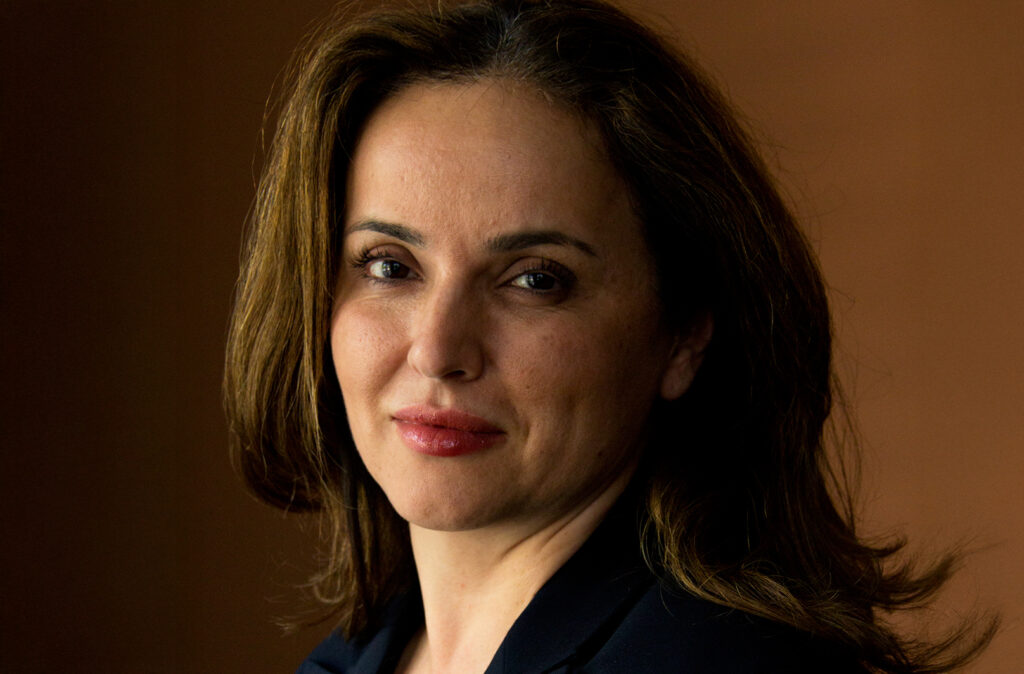
“By 2035, AI will be an ambient presence that anticipates needs, curates information and entertainment and takes on cumbersome-but-routine tasks. This profound shift will redefine how we view ourselves, feel, think, learn and connect with one another while paradoxically highlighting what makes us uniquely human.
“These changes will also fundamentally alter the everyday texture of human life, yet the magnitude of these changes need not transform core human nature. Much like how smartphones changed behavior without fundamentally altering human essence, AI integration will likely be evolutionary rather than revolutionary. The essential characteristics that define human experience – creativity, empathy, critical thinking, and the capacity for deep personal connections – will remain intact, though their expression may evolve.
“As AI systems increasingly curate our experiences and influence our choices, maintaining authentic selfhood will require conscious effort. As the lines between human and AI capabilities become increasingly blurred, questions of human uniqueness and purpose will become more pressing. This, in turn, could inspire a deeper exploration of and value in what truly makes us human.
This profound shift will redefine how we view ourselves, feel, think, learn and connect with one another while paradoxically highlighting what makes us uniquely human. … The magnitude of these changes need not transform core human nature. … The essential characteristics that define human experience – creativity, empathy, critical thinking and the capacity for deep personal connections – will remain intact, though their expression may evolve. … This evolution might ignite a renewed appreciation for uniquely human pursuits … Our ability for original thought and creativity won’t diminish but rather gain value.
“AI will augment rather than replace human cognition, fostering a symbiotic relationship between machine and human intelligence. As AI manages routine mental tasks, we will increasingly our distinctive strengths in emotional intelligence, ethics and creative synthesis. This evolution may ignite a renewed appreciation for uniquely human pursuits – from philosophical discourse to artisanal crafts, where imperfections become markers of authenticity. In this new landscape, our ability for original thought and creativity won’t diminish but rather gain value precisely because machines cannot replicate it.
“But, as AI increasingly handles cognitive tasks, we risk atrophying certain mental capabilities – similar to how smartphone dependence has diminished our ability to recall phone numbers and navigate without GPS. This ‘AI amnesia’ could erode fundamental skills like writing, analysis and organization through lack of practice. While AI augments our capabilities, it may simultaneously weaken our independent competence in basic cognitive functions that historically required active engagement and repetition.
“The social-emotional aspect of human experience will encounter both opportunities and challenges. The nature of relationships will evolve as social interactions become more AI-mediated, leading to new social norms and communication patterns. For instance, for those grieving the loss of a loved one, AI’s capability to create a virtual presence that mimics the physical and behavioral traits of the departed individual may offer comfort.
“Additionally, AI’s ability to create realistic and customized companions in the form of virtual or robotic entities will address the needs of individuals otherwise isolated from human interaction. Consequently, the boundaries between online and offline relationships will increasingly blur, increasing our risk of emotional dependence on AI systems. This may lead us to prize human-to-human connections as more valuable. The ‘human touch’ in fields like nursing and eldercare will become more precious, even as AI handles the administrative and technical aspects of patient care.
As AI systems become more sophisticated in mimicking human traits, we risk developing emotional attachments that could cloud our judgment about their true nature and capabilities. Similar to those we form with fictional characters or social media personalities, these parasocial bonds may lead us to overestimate AI consciousness and ethical weight, potentially compromising our decision-making about AI development and deployment.
“Social cohesion will face new challenges as AI is increasingly adopted in all aspects of our lives. AI will turbocharge the pollution of our information ecosystem with sophisticated tools to create and disseminate misinformation and disinformation. This, in turn, will create deeper echo chambers and societal divisions and fragment shared cultural experiences. As AI becomes more pervasive, a new digital divide will emerge, creating societal hierarchies based on AI fluency. Individuals with greater access to and mastery of AI tools will occupy higher social strata. In contrast, those with limited access to or lower AI literacy will be marginalized, fundamentally reshaping social stratification in the digital age.
“The moral and ethical landscape will transform as AI systems increasingly influence decision-making processes, from organizing our daily routines to estimating the risk of recidivism in criminal justice cases. While AI may provide valuable ethical frameworks and identify moral inconsistencies in our thinking, there’s a risk of over-reliance on artificial systems for moral guidance. The key will be finding ways to use AI to enhance human moral deliberation rather than replace it.
“As AI systems become more sophisticated in mimicking human traits, we risk developing emotional attachments that could cloud our judgment about their true nature and capabilities. Similar to those we form with fictional characters or social media personalities, these parasocial bonds may lead us to overestimate AI consciousness and ethical weight, potentially compromising our decision-making about AI development and deployment.
“The key to success in this AI-integrated future will be maintaining human agency while harnessing AI capabilities. The challenge and opportunity lie in our wisdom in managing this integration, ensuring that AI serves as a catalyst for human development rather than a substitute for human capability, interaction and connection.”
This essay was written in January 2025 in reply to the question: Over the next decade, what is likely to be the impact of AI advances on the experience of being human? How might the expanding interactions between humans and AI affect what many people view today as ‘core human traits and behaviors’? This and nearly 200 additional essay responses are included in the 2025 report “Being Human in 2035.”


